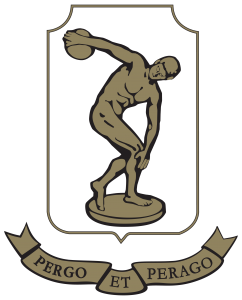
Physics - Level 2
PHY2 Course DescriptionTeacher in Charge: Nigel Burling.
PrerequisitesIf you did not take a pathway course in year 11, or achieved lower than a D grade in that course and a D grade in Mathematics, you will need HOD approval.
A sound level of algebra/maths is required for this course.
Physics is the study of the relationship between matter and energy.
Physicists attempt to understand the fundamental mathematical relationships that govern natural phenomena and apply those relationships to interesting problems. The main reason to study physics is because you are curious about how the world works. In addition to that knowledge, you gain a set of incredibly useful skills that make you attractive to a wide range of employers.
This course trains you to become a competent problem solver. You will learn to break down a problem into its component parts and apply mathematics, computing, data analysis, and experimental techniques to arrive at a solution. We also emphasize technical writing and presentation skills, as well as working in teams.
Topics covered at Level 2:
•Mechanics
•Electricity and Electromagnetism
•Waves (Foundational for Level 3)
•Atomic and nuclear physics
•Practical investigations
•Application of Physics
Course Overview
Term 1
Demonstrate understanding of Atomic & Nuclear physics.
AS 91172 Phy 2.5 (3 Credits Internal)
Topics covered: Atomic structure, Radioactivity, Radioactive decay, Fission, Fusion
Demonstrate understanding of mechanical systems.
AS 91523 Phy 2.4 (6 Credits External)
Topics covered: Motion under constant acceleration, Projectile motion, Circular motion, Forces, Torque, Equilibrium, Energy & Momentum.
Term 2
Continuation of mechanical systems.
Carry out a practical investigation to test a physics theory relating two variables in a non-linear relationship.
AS 91168 Phy 2.1 (4 Credits Internal)
Topics covered: Significant figures, Scientific method, Data collection, Data transformations, Accuracy and precision, Graphing, and Report writing.
Demonstrate understanding of physics relevant to a selected context
AS 91169 Phy 2.2 (3 Credits Internal)
Research Report on a application of Physics to everyday life.
Term 3
Demonstrate understanding of electrical systems.
AS 91173 Phy 2.6 (6 Credits External)
Topics covered: Electric fields, Electrostatic forces, Series and Parallel circuits, Voltage, Current, Resistance, Power, Magnetic fields, Magnetic forces, Motors, Induction, and Generators.
Wave systems.
(0 Credits)
Foundational knowledge in preparation for level 3.
Term 4
Revision
Pathway
Physics - Level 3, Science 3 (Internally Assessed)
Career PathwaysMining Engineer, Aeronautical Engineer, Mechanical Engineering Technician, Aircraft Maintenance Engineer, Software Developer, Sound Technician, Electronics Engineer, Chemical Engineer, Biomedical Engineer, Biotechnologist, Fabrication Engineer, Mechanical Engineer, Electrical Engineer, Building and Construction Manager, Surveyor, Civil Engineer, Meteorologist, Telecommunications Engineer, Pharmacist, Pharmacy Technician, Information Technology Helpdesk/Support Technician, Dentist, Medical Imaging Technologist, Diagnostic Radiologist, Geologist, Electrical Engineering Technician, Lift Technician, Engineering Machinist, Information Technology Architect, Environmental Engineer, Marine Engineer, Train Driver, Refrigeration/Air-conditioning Technician, Plastics Technician, Network Administrator, Actuary, Statistician, Economist, Policy Analyst, Tertiary Lecturer, Valuer
Contributions and Equipment/Stationery